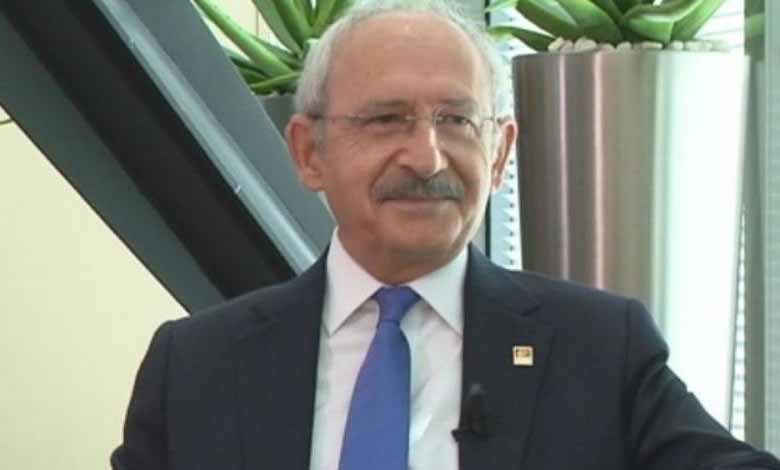Kilicdaroglu accuses Russia of influencing elections in favor of Erdogan

Kemal Kilicdaroglu, Recep Tayyip Erdogan’s main opposition leader and rival in the May 14 presidential elections, on Thursday, accused Russia of using a “deep fraud technique” as part of the campaign in a blatant accusation of Russians backing the incumbent against his rivals.
The accusations by Turkey’s main rival came hours after another candidate, Muharrem İnce, announced he was quitting the race after becoming the target of an online smear campaign.
“Dear Russian friends, you are behind the monologs, conspiracies, forgeries, and recordings that were uncovered yesterday in this country,” he wrote via Twitter.
“If you want our friendship after May 15th, do not touch the Turkish state. We always support cooperation and friendship.”
Moscow is believed to be seeking Erdogan’s support to protect its interests, fearing the rise of a candidate who would be under pressure from the West and join efforts to isolate him, although the opposition alliance has assured the Russian side that it will pursue balanced policies and maintain relations with Moscow.
“Despite some differences between Moscow and Ankara, Erdogan has maintained a balanced relationship between the West and Russia, meeting with Russian President Vladimir Putin on Syria and Ukraine, particularly on the grain export deal.”
“Russia is playing an important role in normalizing relations between Ankara and Damascus, as doing so would serve its interests, especially as relations were strained after the Turkish military downed a Russian airliner that had violated its airspace following Russia’s intervention in Syria in 2015.”
Putin stood by Erdogan during the failed 2016 coup attempt, with sources saying that Russian intelligence gave the current president data and the Turkish government accusing the administration of former US president Barack Obama of being involved in the operation and supporting the coup.
Russia has a history of interfering in other countries electoral entitlements, accused of interfering in the US elections to support the chances of former US President Donald Trump in the face of his Democratic rivals, despite the latter’s denials of such accusations.
Opinion polls show the secular opposition leader slightly ahead of Erdogan in Sunday’s presidential election. If no candidate receives more than 50% of the vote, a second round will be held on May 28.
On Thursday, El Watan leader Muharrem İnce announced he was quitting the race after becoming the target of an online smear campaign, including bogus photographs of him with women or sitting behind the wheel of a luxury car.
Competition is mounting in Turkey for the elections, which are described as crucial, and the country’s streets can be filled with uncertainty, anxiety, anticipation, and tension about what might bring results for Europe’s second-largest country of 85 million people. Many Turks, including a new generation of voters, are eager for change.
“Political forces are working to attract Turkish voters who have been exhausted by grinding inflation, a collapse in the lira, and sharp declines in living standards, in addition to the devastating earthquake in February that killed more than 50,000 people and displaced millions.”












